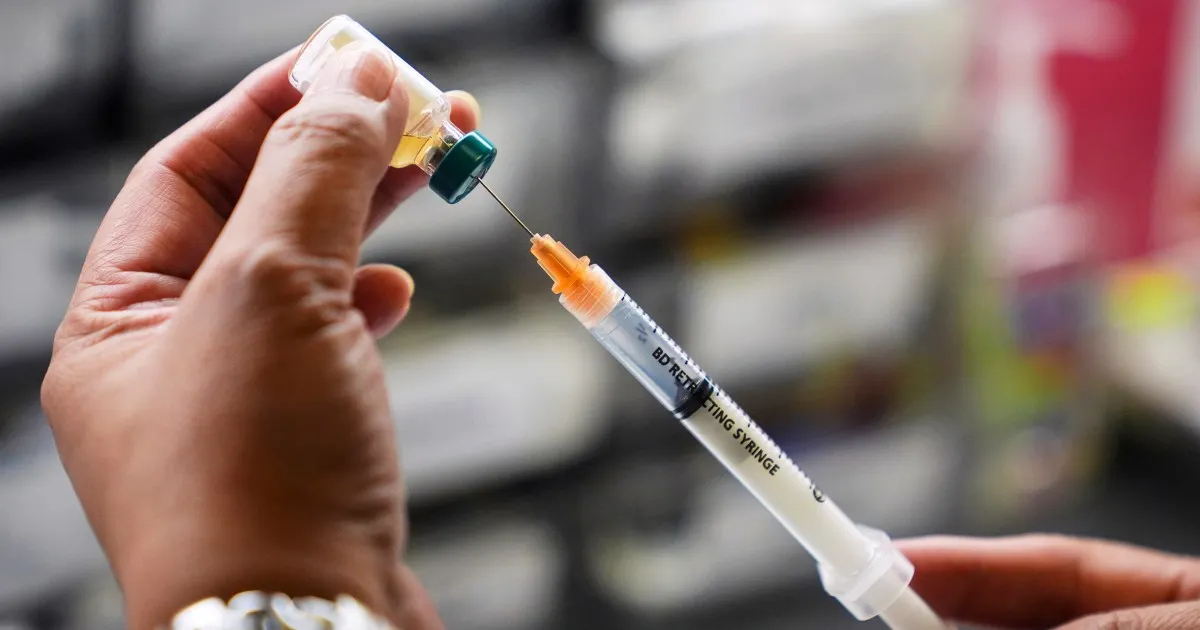
A significant measles outbreak in the upstate of South Carolina has resulted in the quarantine of 153 unvaccinated children. These students will remain out of the classroom for a minimum of 21 days as health officials work to contain the spread of the highly contagious virus. In Minnesota, another small outbreak has emerged, with 118 students in the Minneapolis-St. Paul area also placed under quarantine following exposure to the virus. This situation has raised alarms about the rising incidence of measles as communities grapple with the implications of these restrictions.
The quarantine measures necessitate three weeks of remote learning for affected students, during which parents must monitor for symptoms such as fever and rash. Michael Osterholm, an infectious disease expert and director of the Center for Infectious Disease Research and Policy at the University of Minnesota, emphasized the burden these measures place on communities. “Expect more of the same. This is going to happen more frequently,” he stated, highlighting the ongoing challenges in managing outbreaks.
On Thursday, the South Carolina Department of Public Health confirmed a new measles case in Greenville County, which has no known connection to seven previous cases in nearby Spartanburg County. Dr. Linda Bell, the state epidemiologist, indicated that this case signifies ongoing, unrecognized community transmission of the virus. The identified cases in South Carolina span two educational institutions: an elementary school and a charter school serving students from kindergarten through 12th grade.
Unvaccinated children exposed to measles will be excluded from schools for three weeks—the estimated incubation period before symptoms may appear. Dr. Bell stressed that these measures are crucial for preventing further spread of the measles virus within schools and surrounding communities.
According to data from NBC News, the K-12 vaccination rate for the measles-mumps-rubella (MMR) vaccine in Spartanburg County was reported at 90% for the 2024-25 school year. This figure falls below the 95% threshold recommended by health professionals to effectively prevent outbreaks. Similar statistics from Greenville County indicate an MMR vaccination rate of 90.5%.
In Minnesota, health officials have confirmed 20 measles cases to date in 2025. Furthermore, the Arizona-Utah border is witnessing one of the largest multistate outbreaks, with 103 confirmed cases. Utah’s health authorities have reported an additional 14 cases across the state. In response, school district leaders in southwest Utah have communicated with parents about the outbreak, although the decision on whether to keep children home rests with families.
The resurgence of measles in the U.S. is closely tied to a decline in childhood vaccination rates. In an NBC News investigation, it was revealed that more than three-quarters of counties in the U.S. have seen notable declines in vaccination rates since 2019. Among states reporting data on MMR vaccinations, a staggering 67% lack sufficient coverage to achieve herd immunity.
As of October 7, 2025, the Centers for Disease Control and Prevention (CDC) has confirmed 1,563 measles cases in the U.S., with most linked to domestic outbreaks rather than international travel. This alarming trend raises concerns that if outbreaks persist into January, coinciding with the anniversary of a significant outbreak in West Texas, the United States may lose its status of measles elimination.
Measles symptoms can include:
Headache Fever that may exceed 104 degrees Fahrenheit Cough and runny nose Red, watery eyes Tiny white spots inside the mouth A rash that begins on the scalp and spreads downward to the neck, trunk, arms, and legsAs the threat of measles continues to grow, it is imperative for communities to prioritize vaccination and awareness to combat future outbreaks effectively.